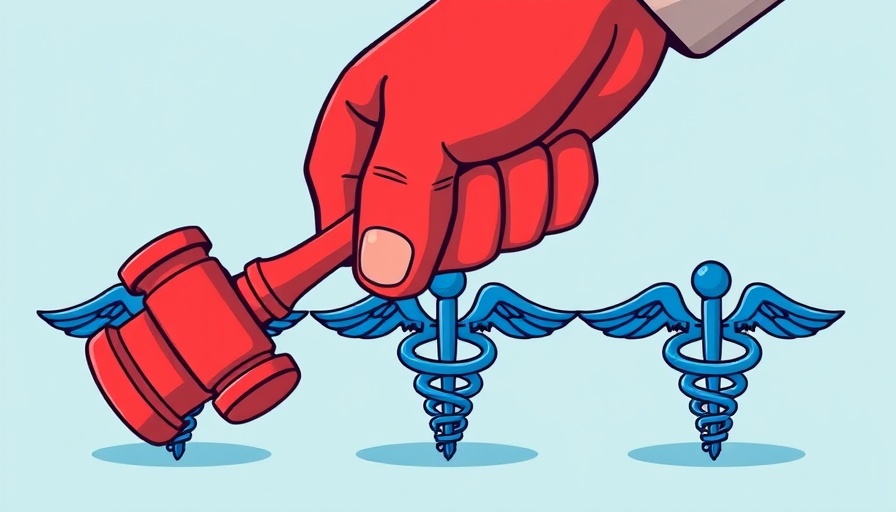
Unprecedented Times for the NIH
The National Institutes of Health (NIH) has been at the heart of biomedical research funding in the United States for years. Known for its significant role in advancing health and wellness, the NIH provides essential grants for studies ranging from cancer treatments to mental health. However, recent political changes have thrown the agency into uncertainty. The Trump administration has ignited a wave of grant terminations previously unseen, canceling established research projects based on political rather than scientific grounds. In a drastic shift, the NIH saw more grants terminated in weeks than the average across a decade. Could this upheaval jeopardize the future of critical research that promotes wellness and mental health?
A New Era of Grant Cancellations
Under the directives from the current administration, NIH officials have found themselves navigating a chaotic landscape. Traditionally, NIH only terminated a handful of grants each year, but now reports suggest a rising number of terminations relating to projects that align with topics like diversity, equity, and inclusion (DEI), as well as research focusing on health issues associated with marginalized communities. Grant terminations that involve transgender populations or studies on vaccine hesitancy have become particularly targetable, creating a sense of fear and uncertainty among researchers committed to advancing health and wellness.
The Impact of Cancelled Grants on Wellness Research
These sweeping cancellations pose immediate threats to ongoing research that could impact public health. Cutting funding to studies aimed at understanding the health of LGBTQ+ populations or improving vaccine uptake directly undermines efforts to promote mental and emotional wellness in society. Researchers, such as Jace Flatt and Alison Buttenheim, are now faced with the grim reality of halted projects and wasted resources. Their research into dementia and mental health will suffer from significant data loss, which can unravel years of hard work and progress toward understanding critical health issues.
How Political Interference Compromises Scientific Integrity
Scientific inquiry thrives on impartiality and the freedom to explore all potential influences on health and wellness. Past administrations have shifted funding priorities, but none have implemented such broad-scale cancellations as we see today. This political interference not only compromises ongoing research; it sends a message that science must align with the current political agenda, undermining the core values of health and wellness research.
Future Predictions: The Landscape of Research
What does the future hold for the NIH and the health research community? The likelihood is that researchers will continue to self-censor, fearing grant terminations that could obliterate their work. Prominent studies on emotional health, mental wellness, and nutrition could dwindle as researchers reassess their interests in light of the current political climate. This trend raises concerns over the stability of scientific progress and funding, potentially leading to significant delays in developing effective wellness practices that enhance quality of life.
Seeking Solutions: A Call to Action
As members of the scientific community grapple with these abrupt changes, it’s vital to emphasize the importance of supporting inclusive and well-rounded research. Those interested in advancing health and wellness must speak up, advocate for funding for projects that address crucial issues, and push back against political pressures that jeopardize scientific integrity. Whether through wellness coaching, mental health advocacy, or promoting holistic approaches, every individual can contribute to creating a healthier, more informed society.
What Can You Do?
At a time when health and mental wellness are critical, we encourage professionals and the general public alike to engage in the conversation around research funding. Advocate for policies that prevent political interference in scientific communities, support wellness initiatives that focus on holistic health through self-care, mindful practices, and community engagement. Together, we can help ensure that vital health research continues unimpeded by political agendas.
Join the call for action and be a voice for wellness. Promote and support research initiatives that enhance mental and emotional health, ensuring that valuable projects can progress without fear of cancellation. Let’s champion a future where health and wellness research thrives for the benefit of all.
 Add Row
Add Row  Add
Add 




Write A Comment